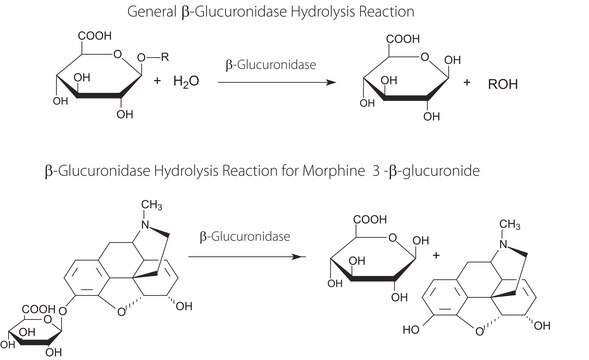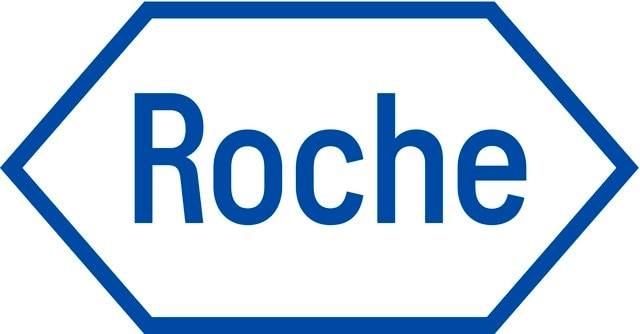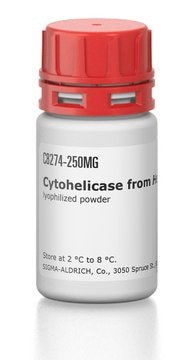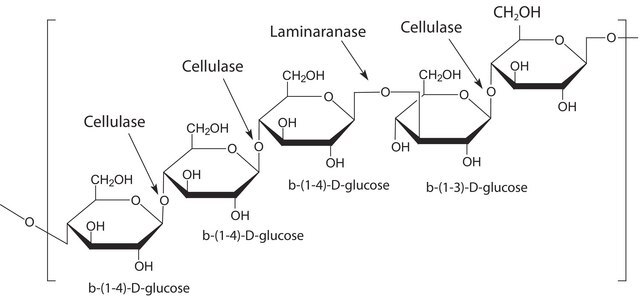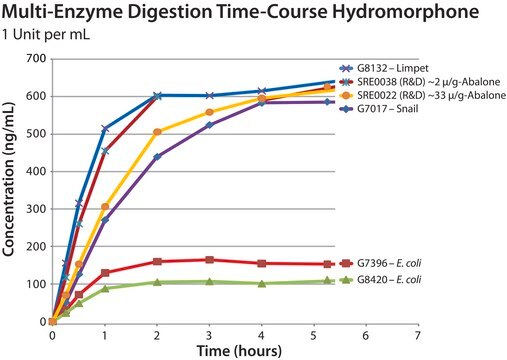G4259
β-Glucuronidase from Helix aspersa (garden snail)
Type HA-4
About This Item
Recommended Products
type
Type HA-4
Quality Level
form
partially purified powder
specific activity
≥300,000 units/g solid solid
secondary activity
≤7,500 units/g solid sulfatase
solubility
H2O: soluble 1.90-2.10 mg/mL, clear to slightly hazy
application(s)
clinical testing
storage temp.
−20°C
Related Categories
Application
Biochem/physiol Actions
Unit Definition
Other Notes
signalword
Danger
hcodes
Hazard Classifications
Resp. Sens. 1 - Skin Sens. 1
Storage Class
11 - Combustible Solids
wgk_germany
WGK 3
flash_point_f
Not applicable
flash_point_c
Not applicable
ppe
Eyeshields, Gloves, type N95 (US)
Certificates of Analysis (COA)
Search for Certificates of Analysis (COA) by entering the products Lot/Batch Number. Lot and Batch Numbers can be found on a product’s label following the words ‘Lot’ or ‘Batch’.
Already Own This Product?
Find documentation for the products that you have recently purchased in the Document Library.
Customers Also Viewed
Protocols
To optimize hydrolysis using β-glucuronidase, factors such as incubation time, temperature, hydrolysis pH, enzyme source, and enzyme concentration must be evaluated for each glucuronide metabolite to be analyzed.
Our team of scientists has experience in all areas of research including Life Science, Material Science, Chemical Synthesis, Chromatography, Analytical and many others.
Contact Technical Service